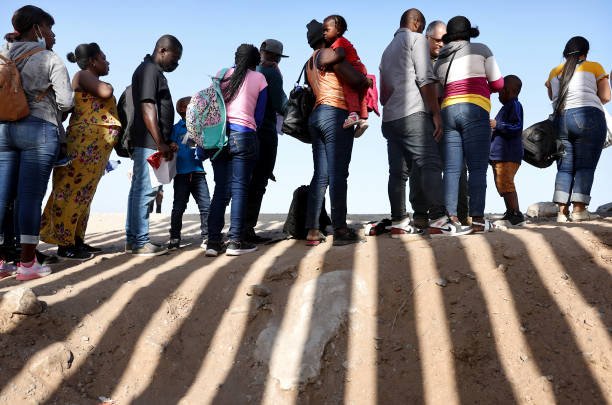Physical Address
304 North Cardinal St.
Dorchester Center, MA 02124
Physical Address
304 North Cardinal St.
Dorchester Center, MA 02124

Uncover the essence of Haiti's national identity in this reflective article on sovereignty.
As we stand at the crossroads of history, it’s time to reflect on Haitian identity and the journey that has shaped Haiti’s sovereignty. With a rich Haitian culture that is both resilient and vibrant, Haiti has navigated through centuries of challenges, emerging as a symbol of freedom and independence.
The story of Haiti is one of courage, perseverance, and the unyielding pursuit of sovereignty. As we look back, we are reminded of the strength that lies within Haitian identity, forged through the trials and tribulations of its people.
In the late 18th century, Haiti embarked on a path that would lead it to become the first independent black nation in the world. This journey was marked by significant events and figures that shaped not only Haiti’s history but also had far-reaching implications globally.
The Haitian Revolution was a pivotal moment in history, marking the first successful slave revolt that led to the establishment of Haiti as a sovereign nation. This revolution was not just a local event but had global implications, challenging the existing social and political order.
Leaders such as Toussaint Louverture, Jean-Jacques Dessalines, and Boukman Dutty played crucial roles in the revolution. They envisioned a free Haiti, where former slaves could live without the shackles of slavery. Their leadership and vision were instrumental in the fight for independence.
Haiti’s independence in 1804 sent shockwaves around the world, inspiring other slave revolts and movements for independence. It challenged the legitimacy of slavery and colonialism, paving the way for future revolutions.
The year 1804 is significant in Haitian history as it marks the official declaration of independence. This act was not just a formal declaration; it represented the culmination of years of struggle and resistance against colonial powers.
The Declaration of Independence was a bold statement of Haiti’s sovereignty, asserting its right to self-governance and freedom. It was a document that symbolized the end of colonial rule and the beginning of a new era.
Following independence, Haiti faced numerous challenges, including economic isolation, internal conflicts, and the struggle to establish a stable government. These challenges tested the resilience and determination of the Haitian people.
| Year | Event | Significance |
|---|---|---|
| 1791 | Start of the Haitian Revolution | Marked the beginning of the end of slavery in Haiti |
| 1804 | Declaration of Independence | Established Haiti as the first independent black nation |
Since its inception, Haiti’s sovereignty has faced numerous pressures from international forces. The newly independent nation, born out of a successful slave revolt, was met with a mixture of awe and hostility from the international community.
Haiti declared its independence in 1804, becoming the first black republic in the world. However, this revolutionary act was not celebrated by all; many nations, particularly those with colonial and slave-holding interests, refused to recognize Haiti’s sovereignty. This led to a period of international isolation, where Haiti was excluded from global diplomatic and economic engagements.
Throughout its history, Haiti has experienced numerous foreign interventions, ranging from military occupations to economic manipulations. The most significant of these was the U.S. occupation from 1915 to 1934, which had a lasting impact on Haiti’s political and economic structures. Such interventions have often undermined Haiti’s sovereignty, creating long-term dependencies and destabilizing the nation.
In 1825, France demanded that Haiti pay a hefty indemnity for the loss of its “property” (enslaved Africans) as a condition for diplomatic recognition. This debt of independence has had a lasting impact on Haiti’s economy, perpetuating a cycle of debt and economic subjugation that continues to affect the nation’s sovereignty today.
The historical pressures on Haiti’s sovereignty have not only shaped its international relations but also its internal identity and struggle for self-determination.
The cultural identity of Haiti is a multifaceted gem, reflecting the nation’s history, its people’s resilience, and their unique traditions. Haitian culture is a vibrant expression of its people’s spirit, shaped by their history, language, and spiritual practices.
The Kreyòl language is a cornerstone of Haitian identity, serving as a unifying force among its people. It is a creole language that emerged as a result of contact between enslaved Africans and French colonizers, reflecting the complex history of the island. Kreyòl is not just a means of communication; it is a symbol of Haitian resilience and cultural heritage. Efforts to standardize and promote Kreyòl have been significant, recognizing its importance in Haitian daily life, education, and media.
Vodou is an integral part of Haitian culture and spirituality, often misunderstood due to historical and cultural biases. It is a complex spiritual practice that originated in West Africa and was influenced by indigenous Taino and Catholic traditions. Vodou ceremonies and practices are not just religious rituals; they are expressions of community, healing, and connection to the divine. Vodou plays a significant role in Haitian identity, influencing art, music, and literature.
Haitian art, music, and literature are powerful forms of expression and resistance, reflecting the nation’s history, struggles, and aspirations. From the vibrant colours and themes of Haitian art to the rhythms of Kompa and Zouk music, cultural expression is a vital part of Haitian identity. Literature, too, has played a crucial role, with authors like Jacques Roumain and Marie Vieux Chauvet contributing to the global understanding of Haitian culture and history. These creative expressions not only showcase Haitian talent but also serve as a means of preserving cultural heritage and promoting national pride.
Amidst turmoil, Haiti’s path forward requires a renewed understanding of its identity and governance. As the nation navigates through complex challenges, it’s crucial to reflect on the core elements that define Haitian sovereignty. This reflection is not just about understanding the current state of affairs but also about envisioning a future that is rooted in the nation’s rich history and cultural heritage.

Haiti is currently facing a multifaceted crisis that affects both its identity and governance. The challenges are deeply intertwined, impacting the nation’s ability to assert its sovereignty effectively. Some of the key issues include:
These challenges underscore the need for a concerted effort to reclaim and strengthen Haitian identity and governance.
Reclaiming the narrative of Haitian sovereignty involves a multifaceted approach that includes:
By taking these steps, Haiti can reclaim its narrative and forge a path that is true to its identity and aspirations.
Haiti’s journey to assert its modern sovereignty is fraught with political challenges. The country’s ability to govern itself effectively is crucial to its sovereignty.
Haiti has long struggled with governance issues, impacting its democratic aspirations. The need for stable, democratic governance is paramount.
Haiti’s constitution has undergone several changes, yet constitutional reforms remain a critical area for improvement to support democratic governance.
Effective institutions are the backbone of a sovereign state. Haiti needs to strengthen its institutions to ensure they serve the populace effectively.
Haiti’s international relations play a significant role in its sovereignty. The country must navigate these relationships carefully to maintain its independence.
The path forward involves careful consideration of these factors to ensure Haiti’s sovereignty is maintained and strengthened.
Achieving true economic sovereignty is a complex challenge for Haiti, requiring a balance between resource control, sustainable development, and diaspora engagement. Economic independence is crucial for Haiti’s self-determination and development.
Control over natural resources is fundamental to economic sovereignty. For Haiti, this means managing its agricultural land, mineral deposits, and other resources effectively.
Agricultural self-sufficiency is a key component of economic independence. By improving agricultural practices and productivity, Haiti can reduce its reliance on imported food and enhance its food security. As noted by a Haitian agricultural expert,
“Investing in agriculture is investing in our future; it’s about feeding our people and building our economy.”
Haiti is endowed with natural resources, including gold, copper, and scenic landscapes that can support tourism. Sustainable development of these resources is essential for long-term economic stability and environmental protection. Sustainable practices can ensure that economic growth does not come at the expense of the environment.

The Haitian diaspora plays a significant role in the country’s economy through remittances. These financial inflows are crucial for supporting families and contributing to national economic stability. Diaspora engagement is not limited to financial remittances; it also includes investment, knowledge transfer, and advocacy.
Efforts to formalize and facilitate remittances can enhance their impact on the economy. Moreover, initiatives to encourage diaspora investment in Haiti can contribute to economic development and sovereignty.
The Haitian diaspora plays a pivotal role in shaping the identity of Haiti through various cultural, economic, and social contributions. As a significant force in Haitian society, the diaspora community influences Haitian identity in multifaceted ways.
The diaspora community is instrumental in preserving Haitian culture. They achieve this through:
These efforts not only preserve cultural heritage but also foster a sense of community among Haitians worldwide.
Diaspora engagement is crucial for Haiti’s development. This engagement is manifested in two key areas:
The diaspora contributes to knowledge transfer by sharing expertise and skills acquired abroad. This transfer enhances local capacities in various sectors, including healthcare, education, and technology.
Diaspora investments are vital for economic development. Remittances from the diaspora support families and stimulate local economies. Moreover, diaspora-led investments in infrastructure and businesses create jobs and foster economic growth.
By engaging in these activities, the Haitian diaspora plays a crucial role in shaping the nation’s identity and contributing to its development.
With the world at their fingertips, Haitian youth are reimagining their nation’s identity on a global scale. They are not only embracing their cultural heritage but also leveraging modern technologies to forge a new path forward. This blend of tradition and innovation is creating a dynamic and evolving Haitian identity.
Haitian youth are digital natives, growing up in a world where technology and social media dominate. This has enabled them to connect with their diaspora communities and the global world, creating a transnational Haitian identity. They share their culture, learn from others, and participate in global conversations, enriching their understanding of what it means to be Haitian.
Beyond the digital realm, Haitian youth are actively engaged in youth-led movements that drive social and political change. These movements address issues such as governance, environmental sustainability, and social justice, reflecting the youth’s aspirations for a better Haiti. By organizing protests, creating art, and advocating for policy changes, they are challenging the status quo and pushing for a more inclusive and equitable society.
The energy and creativity of Haitian youth are pivotal in shaping the future of Haiti. As they continue to innovate and lead, they are redefining Haitian identity in ways that are both rooted in tradition and open to the possibilities of the future.
The future of Haitian sovereignty is inextricably linked with its education system. As the nation looks to reclaim its independence, education emerges as a critical factor. It is through education that Haitians can rediscover their history, culture, and identity, thereby strengthening their national consciousness.
Decolonizing the educational curriculum is a vital step towards reclaiming sovereignty. This involves revisiting historical narratives and integrating Haitian perspectives into the educational framework. By doing so, Haitian students can learn about their rich cultural heritage and the true history of their nation, rather than a version filtered through a colonial lens.
Building a robust educational foundation is essential for Haiti’s independence. This includes improving educational access, particularly in rural areas, and promoting technical education and innovation.
Language policy plays a crucial role in educational access. Promoting the use of Kreyòl in educational settings can significantly enhance learning outcomes for Haitian students. As
“Education is the most powerful tool which you can use to change the world,”
said Nelson Mandela, underscoring the importance of accessible education.
Technical education and innovation are key drivers of economic development. By focusing on these areas, Haiti can foster a new generation of innovators and entrepreneurs, thereby contributing to the nation’s economic independence.
International solidarity and intervention are two forces that Haiti must carefully balance to preserve its national identity and sovereignty. The country’s history has shown that while international support can be beneficial, it can also undermine its autonomy if not managed carefully.
The need for a balanced approach is critical in ensuring that Haiti receives the support it needs without compromising its sovereignty. This involves redefining how foreign aid is delivered and received, focusing on building partnerships that are based on mutual respect and equality.
Foreign aid, when provided without consideration for Haiti’s sovereignty, can lead to dependency rather than empowerment. Redefining foreign aid involves shifting from a donor-recipient model to a partnership model where both parties have equal say in the terms of assistance.
Building partnerships of equals requires a fundamental shift in how international collaborations are approached. It involves recognizing Haiti as an equal partner with its own agency and decision-making capacity.
Key elements of such partnerships include:
By adopting this approach, Haiti can ensure that its sovereignty is respected while still benefiting from international solidarity.
Haiti stands at a crossroads, poised to reclaim its sovereignty and forge a future deeply rooted in its unique cultural identity. The journey towards a sovereign future is complex, requiring a deep understanding of Haitian values and a commitment to self-determination.
Embracing its rich heritage, including the Kreyòl language, Vodou spirituality, and vibrant arts scene, is crucial for Haiti to assert its identity on the global stage. By reclaiming its narrative and promoting Haitian values, the nation can build a more resilient and independent society.
The path forward demands a collaborative effort from Haitians and the international community. It requires redefining foreign aid and assistance, fostering partnerships of equals, and supporting youth-led movements for social and political change. Together, Haiti can forge a sovereign future that honours its past while embracing the challenges of the 21st century.
By supporting Haiti’s journey towards true sovereignty, the global community can help ensure that the nation continues to thrive as a beacon of freedom and self-determination, rooted in the values that have defined it since its revolutionary birth.
Haiti’s revolution is significant as it marked the first successful slave revolt in modern history, leading to the establishment of the first black republic in the world. This event had far-reaching implications, challenging the colonial and slave-based economies of the time.
Foreign interventions, including occupations and economic interventions, have significantly impacted Haiti’s sovereignty, often undermining its ability to self-govern and make independent decisions. These interventions have contributed to ongoing challenges in governance and economic stability.
The Kreyòl language is a cornerstone of Haitian identity, serving as a unifying element among Haitians and a symbol of national pride. It is an essential part of Haitian culture and daily life.
Vodou is a significant aspect of Haitian spirituality and culture, influencing various aspects of life, from art and music to social practices and community bonding. It is a complex spiritual practice that is deeply intertwined with Haitian identity.
Haiti faces several challenges in governance and democracy, including weak institutional frameworks, corruption, and political instability. These challenges hinder the country’s ability to achieve stable democratic governance.
The Haitian diaspora can contribute to Haiti’s development through various means, including remittances, investment, knowledge transfer, and capacity building. Their engagement is crucial for supporting economic growth and preserving cultural heritage.
Reclaiming and decolonizing Haitian history and education are crucial for promoting a more accurate and empowering understanding of Haitian identity and history. This process involves challenging the dominant narratives and promoting Haitian perspectives and knowledge.
International solidarity can support Haiti’s sovereignty by promoting partnerships based on equality, mutual respect, and cooperation. This includes redefining foreign aid and assistance to ensure it supports Haiti’s self-determined development goals.
Haitian youth play a vital role in shaping the country’s future, driving social and political change, and leveraging digital technologies to promote Haitian identity and interests globally.